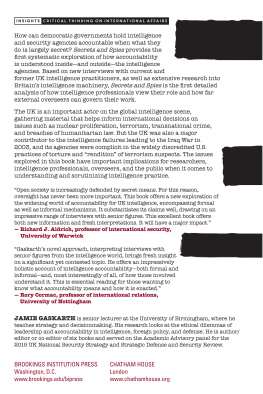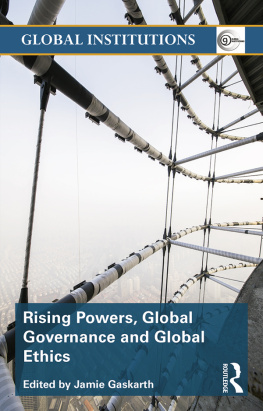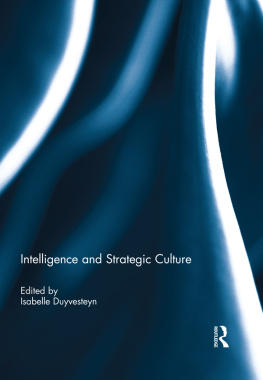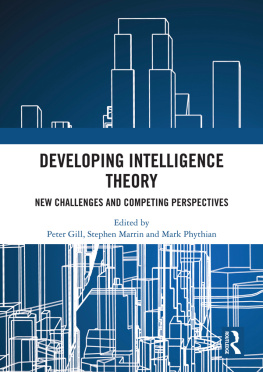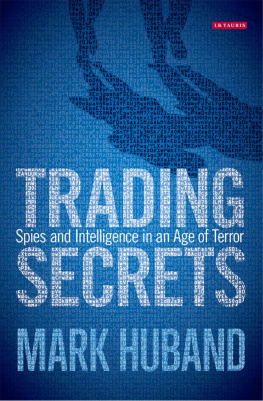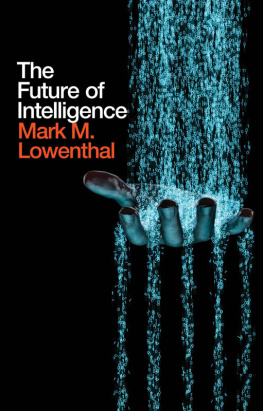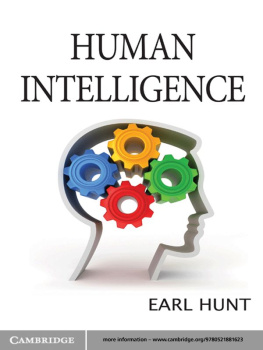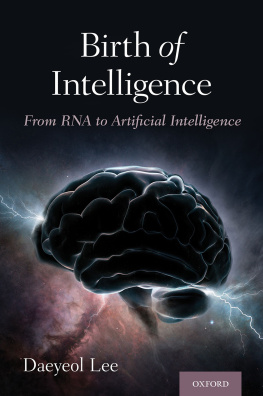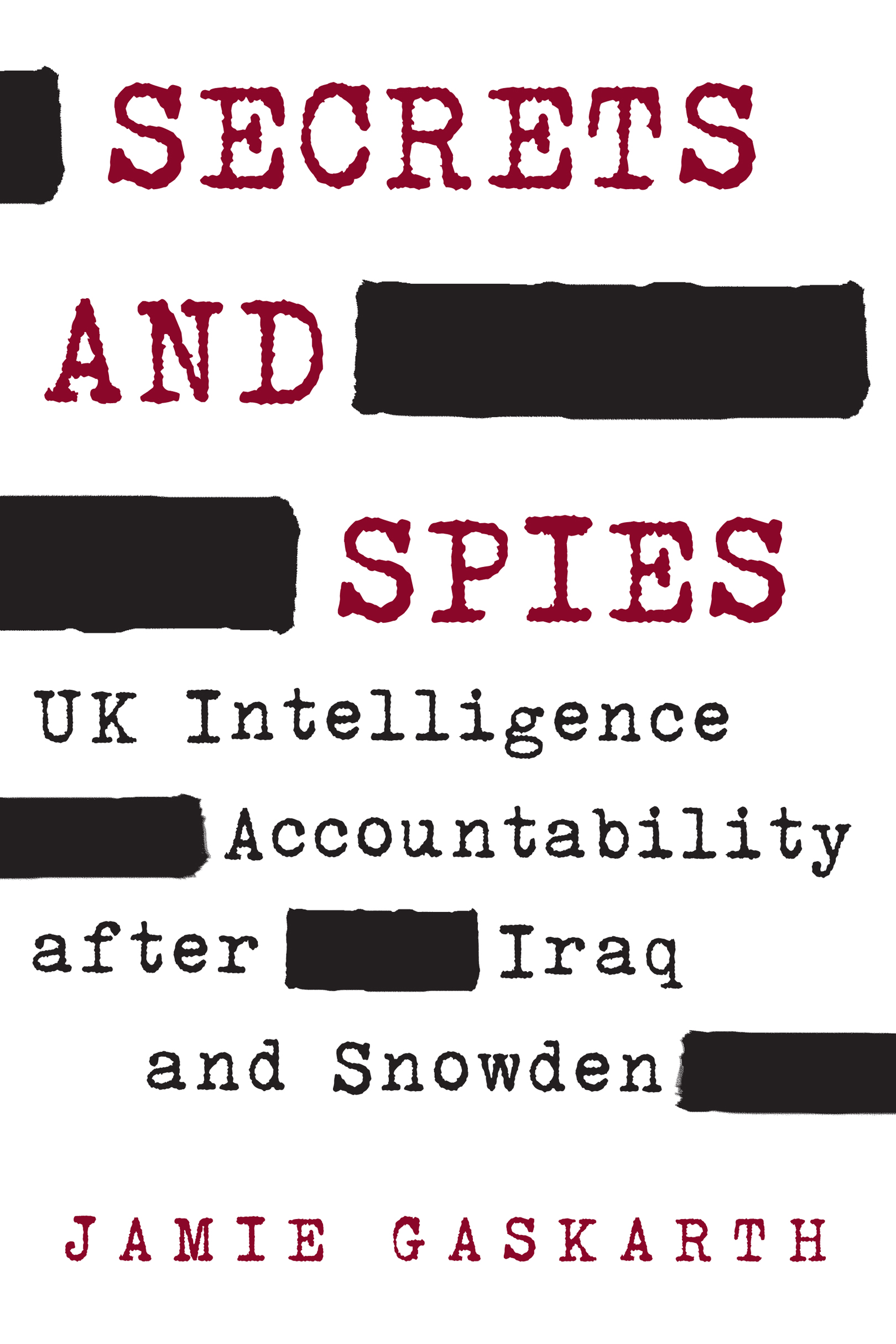Contents
Guide
Pagebreaks of the print version
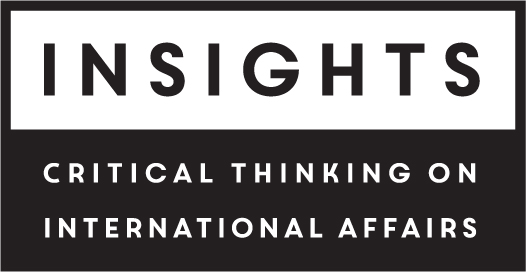
Providing new perspectives and knowledge on an increasingly complex, uncertain, and interconnected world.
The Chatham House Insights Series
Series Editor: Caroline Soper
The Insights series provides new perspectives on and knowledge about an increasingly complex, uncertain, and interconnected world. Concise, lively, and authoritative, these books explore, through different modes of interpretation, a wide range of country, regional, and international developments, all within a global context. Focusing on topical issues in key policy areas, such as health, security, economics, law, and the environment, volumes in the series will be written accessibly by leading expertsboth academic and practitionerto anticipate trends and illuminate new ideas and thinking. Insights books will be of great interest to all those seeking to develop a deeper understanding of the policy challenges and choices facing decisionmakers, including academics, practitioners, and general readers.
Published or forthcoming titles:
Amitai Etzioni, Foreign Policy: Thinking Outside the Box (2016)
David Lubin, Dance of the Trillions: Developing Countries and Global Finance (2018)
Keir Giles, Moscow Rules: What Drives Russia to Confront the West (2019)
Nigel Gould-Davies, Tectonic Politics: Global Political Risk in an Age of Transformation (2019)
Chatham House, the Royal Institute of International Affairs, is a world-leading policy institute based in London. Its mission is to help governments and societies build a sustainably secure, prosperous, and just world.
Chatham House does not express opinions of its own. The opinions expressed in this publication are the responsibility of the author(s).
SECRETS AND SPIES

U.K. Intelligence Accountability after Iraq and Snowden
JAMIE GASKARTH
BROOKINGS INSTITUTION PRESS
Washington, D.C.
CHATHAM HOUSE
The Royal Institute of International Affairs
London
Copyright 2020
THE BROOKINGS INSTITUTION
1775 Massachusetts Avenue, N.W., Washington, D.C. 20036
www.brookings.edu
All rights reserved. No part of this publication may be reproduced or transmitted in any form or by any means without permission in writing from the Brookings Institution Press.
The Brookings Institution is a private nonprofit organization devoted to research, education, and publication on important issues of domestic and foreign policy. Its principal purpose is to bring the highest quality independent research and analysis to bear on current and emerging policy problems. Interpretations or conclusions in Brookings publications should be understood to be solely those of the authors.
Library of Congress Cataloging-in-Publication Data.
Names: Gaskarth, Jamie, 1976 author.
Title: Secrets and spies : UK intelligence accountability after Iraq and Snowden / Jamie Gaskarth.
Description: Washington, D.C. : Brookings Institution Press, [2020] | Series: The Chatham House insights series | Includes bibliographical references and index.
Identifiers: LCCN 2019048135 (print) | LCCN 2019048136 (ebook) | ISBN 9780815737971 (paperback : alk. paper) | ISBN 9780815737988 (epub)
Subjects: LCSH: Intelligence serviceGreat BritainHistory21st century. | Government accountabilityGreat BritainHistory21st century.
Classification: LCC JN329.I6 G37 2020 (print) | LCC JN329.I6 (ebook) | DDC 327.1241dc23
LC record available at https://lccn.loc.gov/2019048135
LC ebook record available at https://lccn.loc.gov/2019048136
9 8 7 6 5 4 3 2 1
Typeset in Adobe Garamond
Composition by Elliott Beard
Contents
Acknowledgments
First, I would like to express my thanks for Caroline Sopers encouragement and intellectual input in making this book a reality. Caroline is a brilliant editor of International Affairs and has continued to be an inspiration as Insights Series editor. I am also grateful to Amanda Moss of Chatham House and Bill Finan, Kristen Harrison, and Cecilia Gonzlez of the Brookings Institution Press for all their help and support, as well as Olga Gardner Galvin for her attentive copyediting skills.
I conducted over forty interviews, discussions, coffees, and lunches with former and current intelligence practitioners as well as members of the ISC and IPCO, former foreign secretaries and ministers, and other interested parties. It is unfortunate that I cannot name them, for obvious reasons, but the project would not have been possible without them generously giving up their time and wisdom. I am very thankful to the British Academy for awarding me a research grant that enabled this project to happen in the first place (SG151249). I have also benefited from the kindness of academic colleagues who read drafts or offered insights into the intelligence world. Special thanks go to Rory Cormac, Steve Hewitt, Scott Lucas, Adam Quinn, Tim Edmunds, Frank Foley, Raquel Da Silva, Richard Aldrich, Abigail Watson, Nicholas Kitchen, as well as Nichola Hardwicke for her brilliant transcription skills and Ben Whale and Jessica Rowley for their diligent research assistance. Any opinions or errors in the text are, of course, my own. The University of Birmingham has generously provided support for conference attendance and offered an intellectual environment for developing my ideas, which is much appreciated. Thanks also to my wife, Ellie, and daughters, Marla and Peggy, for keeping me sane and distracted. Above all, it is Joanna and John Luxford and Michael and Teresa Connolly who made this book possible through their heroic childcare efforts. I therefore dedicate it to them with love.
Introduction
In 2017, a series of terrorist attacks in London and Manchester killed thirty-six innocent people and injured nearly two hundred others. Three of the six attackers were known to the British Security Service, two of them having previously been subjects of interest and one, Khuram Butt, the subject of an active investigation. Indeed, Butt was under surveillance and footage was recorded of him loading the van that would eventually be used to kill two people on London Bridge before the attackers went on to murder a further six people. The partner of one of the victims expressed shock on hearing this information, arguing, Its important the authorities know that society, including the victims families, will hold them accountable for any errors.
This begs the question: what does accountability mean in this context? After these attacks, the home secretary ordered a series of internal reviews by police forces and the Security Service to identify areas for operational improvement. The nine classified reports that resulted were themselves reviewed by Sir David Anderson, QC, In addition, the inquests included cross-examination of security personnel and investigation into procedures connected with monitoring suspects. If accountability means giving an account of ones actions, then these agencies did so extensively, both within their organizations and externally to oversight bodies and the wider public. Lessons were learned, with the classified reports detailing 126 recommendations for changes to future practice.

